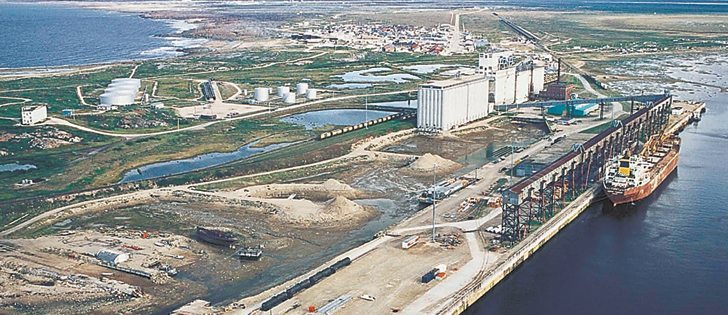The Port of Churchill and the Hudson Bay Railway that serves it must be sold quickly if the port is to avoid another disappointing grain shipping season.
Sinclair Harrison, president of the Hudson Bay Route Association believes a rapid sale is imperative to ensure the port returns to average grain volumes this year.
The port normally handles 500,000 tonnes of grain a year, but volumes were less than 200,000 tonnes last year.
“I guess our biggest concern is that the deal is completed … (soon) and we can move on with whoever the new owner is,” Harrison said.
Read Also

Alberta may eliminate marked fuel
Alberta may soon stop selling dyed gasoline and diesel.
The port is coming off its worst grain season in years.
The facility loaded 186,000 tonnes of grain last year, only one-third of what is handled in a normal shipping year.
The port’s owner, OmniTrax Canada, intends to sell the facility as well as the Hudson Bay Railway.
HBR, which runs between Chur-chill and The Pas, Man., is the only railway that serves the port.
OmniTrax officials blamed the lower shipping volumes on last year’s late harvest and slow grain sales in the railway’s catchment area.
The company is involved in discussions with a group of Manitoba First Nations that have expressed interest in buying the port and the railway.
The First Nations group said it will examine the assets and determine if an offer will be made by the end of January.
The port’s shipping season usually starts in late July or early August and can last until November or later, depending on ice conditions in the harbour.
“The sooner they (the new owners) can get talking to people and making arrangements, the better,” Harrison said.
“We’d like to see the terminal filled up in April, May and June so that it’s all ready to go and shipping can begin by the end of July.”
Tracey Shelton, director of corporate communications with Richardson International, said her company will continue to ship grain through Churchill if it makes financial sense.
Richardson has been the port’s biggest grain shipper since the western Canadian wheat market was deregulated in 2012, but the amount of Richardson grain shipped through Churchill was down significantly last year.
Shelton said lower ocean freight rates have affected the economics of shipping grain through Churchill because they made shipping through other ports more attractive.
That, when combined with the tighter shipping window at Churchill, made it a less attractive option.
Richardson has also expanded handling capacity and volumes at its own terminals on the West Coast, in Eastern Canada and at Thunder Bay.
A federal subsidy that offers shippers $9 on every tonne of grain moved through Churchill has increased the attractiveness of the northern port, but it is due to expire in less than 18 months.
OmniTrax Canada’s planned sale of the railway and port coincides with provincial elections in Saskatchewan and Manitoba.
Company president Merv Tweed said last month that the social and cultural benefits of the Hudson Bay Railway should be considered carefully when assessing its future.
The railway serves as an important link to remote northern Manitoba communities, delivering food, fuel and other essentials.
Harrison said the Keewatin Railway Company, a First Nations railroad that owns a 300-kilometre branch line between The Pas and Pakatawagan, Man., has proven that a locally owned and operated railway can be successful.
KRC bought the Pukatawagan branch line in 2006 from OmniTrax.
“So we hope that they’re involved in this purchase so that there’s some railroading expertise coming to the table.”
















